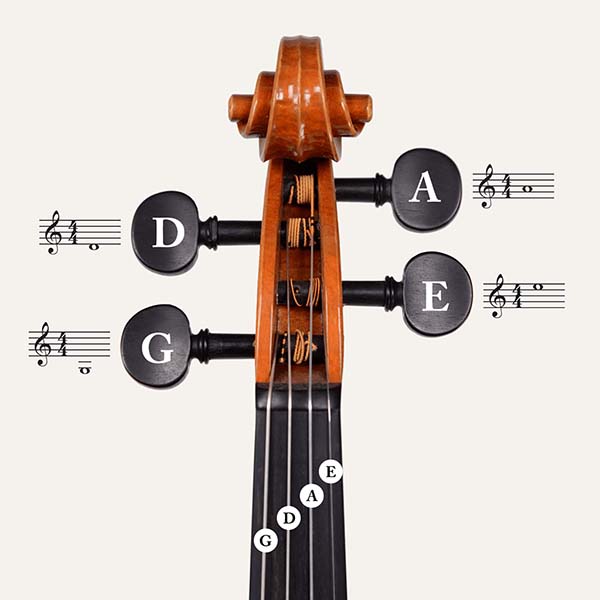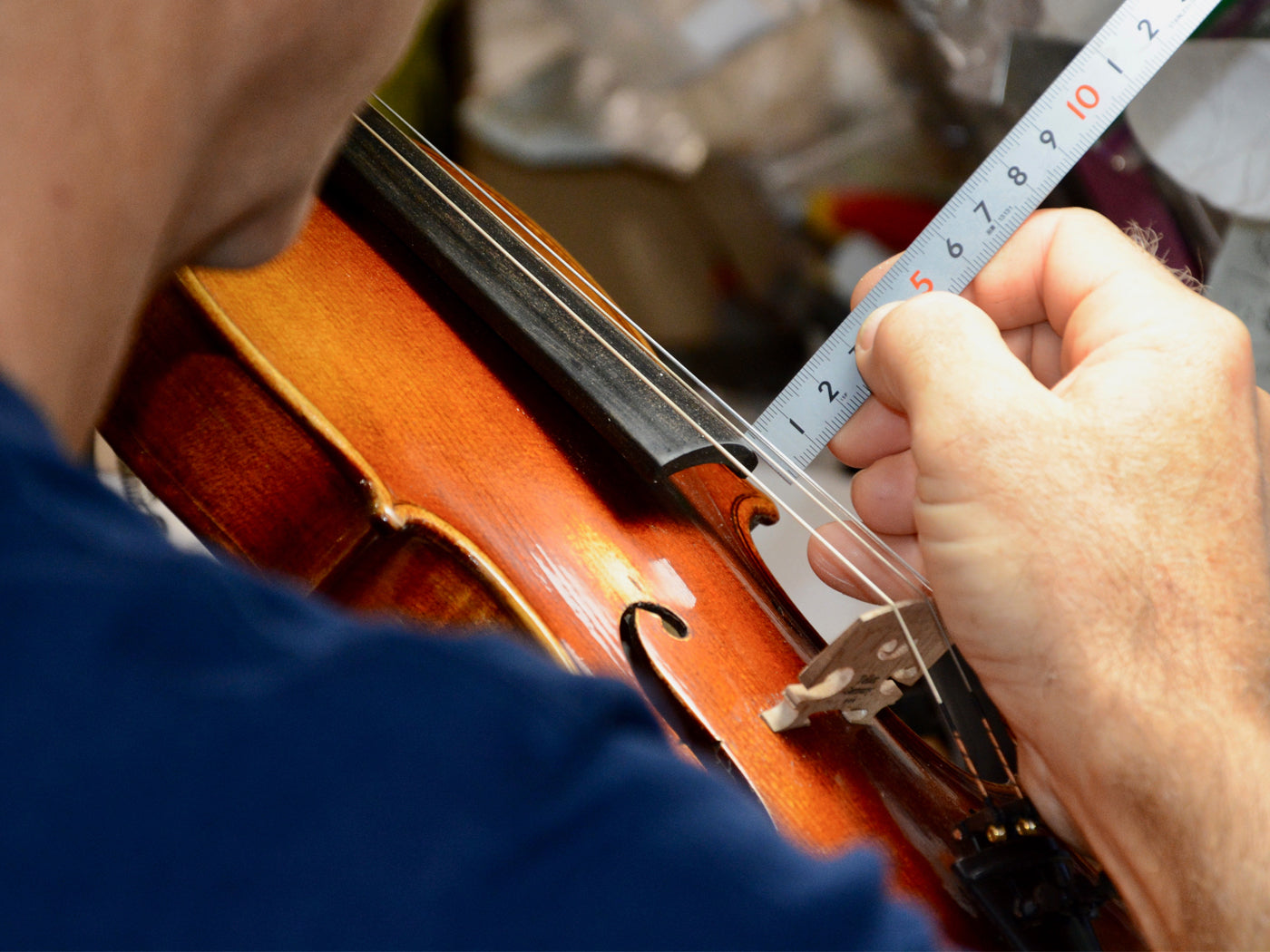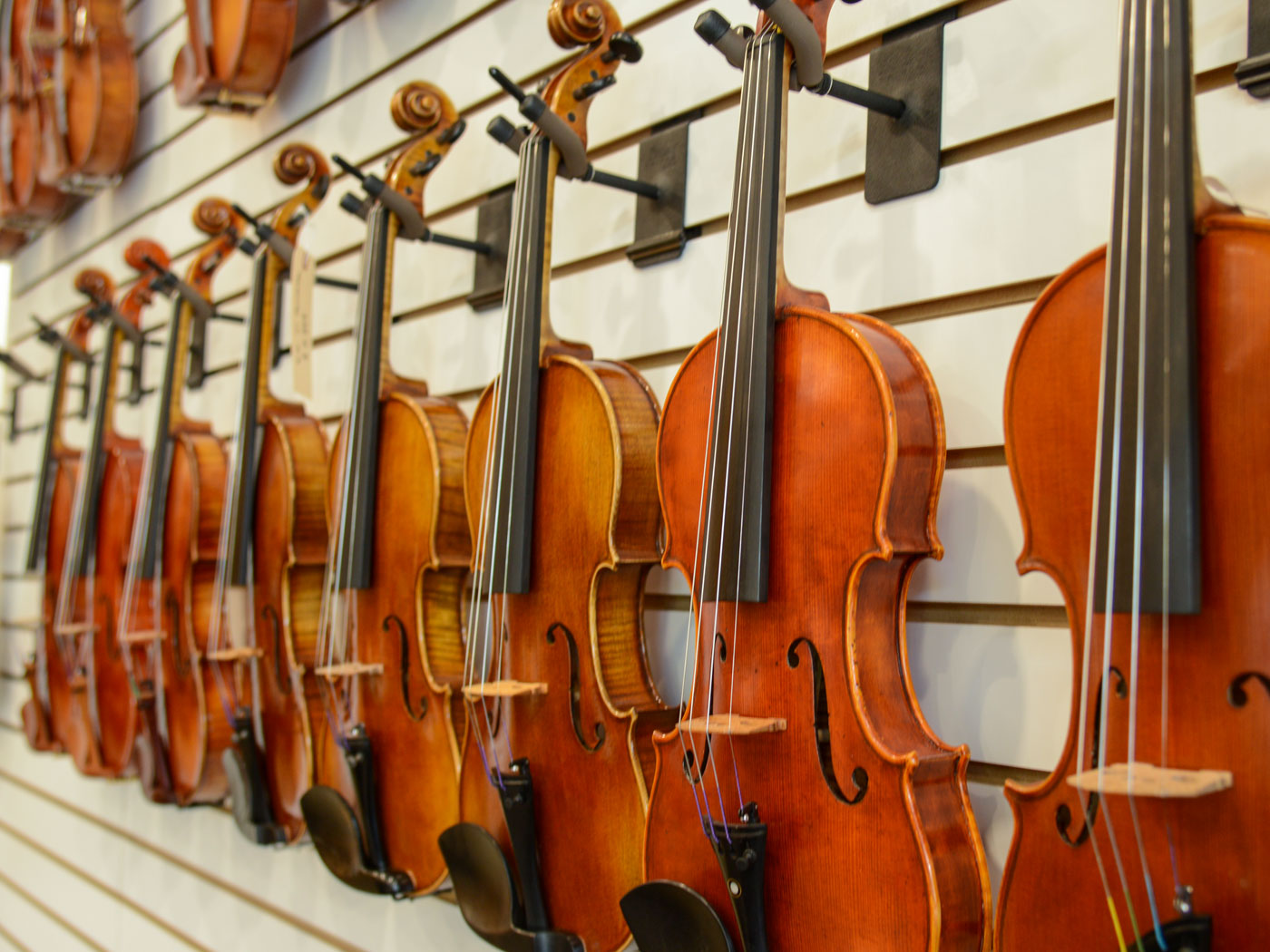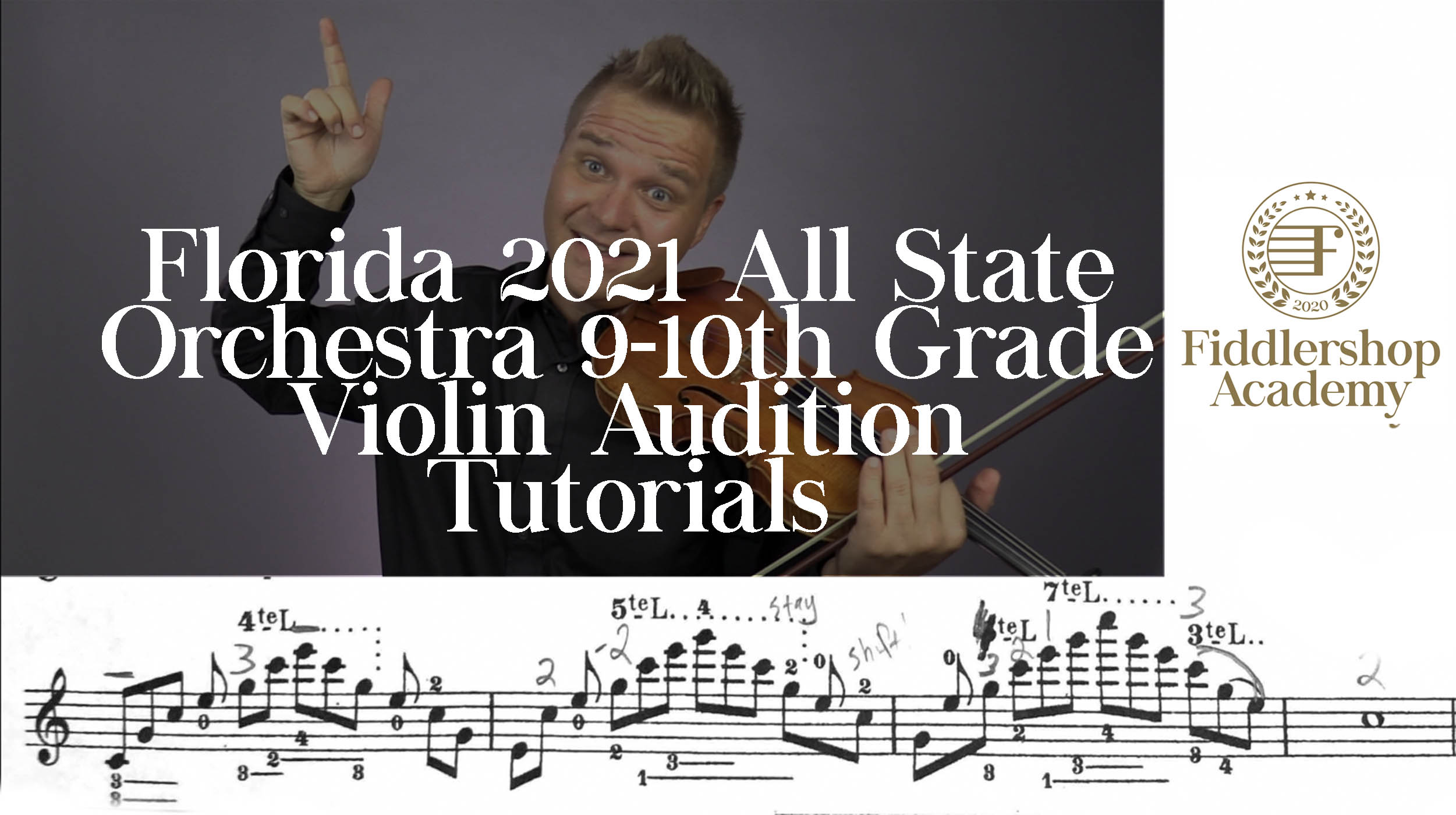Other parts we focus on when crafting setups include: tuning pegs, neck shape, saddle height, sound post, tailpiece, and the bridge.
Most retailers (both online and locally) will ship or provide their instruments with a standard factory setup. This will make it more difficult to play, which can be discouraging when learning. At Fiddershop we wouldn’t approve of this factory setup- this is why we do our own setups!
What is the importance of the setup?
- It makes it easier to play.
- You will learn/grow with the instrument faster.
- It sounds better!
- It retains the stability of your tuning.
- Keeps you more motivated in general.
When should I get my violin adjusted?
- Violin goes out of tune frequently.
- Buzzing sounds.
- Remained in case for several years.
- Hard to play.
- Doesn't sound good.
What is the Fiddlershop setup?
Every violin that leaves Fiddlershop's workshop will arrive set up along with our famous 10-point inspection. This includes assessing the violin bridge height, bridge seating, fingerboard (checking to find waves or improper curves), place a parchment on the e-string slot of bridge, check string slots (bridge and nut), properly fit pegs, check fine tuners, adjust the tailpiece as close to saddle as possible, properly fitting end button, fit sound post, do a structural inspection (no cracks or breaks, nicks or marks), and final cleaning. You will receive the 10 point-inspection checklist certificate with the purchase of your new violin at Fiddlershop.
The numbers below can vary and are meant as a general guideline. These measurements are for a full-size violin:
- The string spacing on the bridge should be between 33 to 33.5 mm from the center of G-string to the center of E-string, with equal spacing between all strings.
- The fingerboard projection toward the bridge is typically 27mm, or close to it.
- The string spacing at the nut should be 16 to 16.3 mm from the center of the G to the center of the E with equal spacing throughout. The string slots need to tilt slightly inward towards the scroll.
- The string height: G-string 5.5mm, E-string 3.5mm (Can vary based on the tension of the strings, or fingerboard shape and projection).
- Set sound post 1 to 6 mm "below" (when violin is standing up) the E-string bridge foot. Set the center of the sound post (in relation to bridge foot) 1mm inwards, towards the G string, to start.
We make sure that your violin arrives at your door with the perfect setup, so you get the best tone and easiest playability, ready-to-play right out of the box. The setup is included in the purchase price of your violin and is backed by our 100% satisfaction guarantee!
Here is a video of how to set up a violin the Fiddlershop way.






2 comments
Fiddlershop
Hi Walter!
The string heights are quoted for synthetic core. They can be slightly lower when steel core strings are used, but not always. This depends on the instrument.
Hi Walter!
The string heights are quoted for synthetic core. They can be slightly lower when steel core strings are used, but not always. This depends on the instrument.
Walter Campbell
Are the string heights that you quoted for both synthetic core and steel core? I read that steel core is usually, or can be, lower than synthetic.
Are the string heights that you quoted for both synthetic core and steel core? I read that steel core is usually, or can be, lower than synthetic.